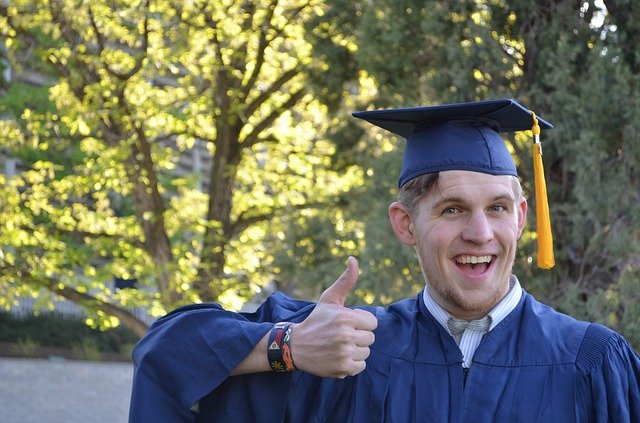
A graduate is someone who completed a bachelor's degree.
Licensed is the status achieved by someone who obtains a license . The term is used, therefore, to describe the person who has completed a bachelor's degree , a university degree that is accessed after completing a degree of between four and six years in duration.
According to the theory , the individual who obtains it is qualified to practice a certain profession, certifying his or her abilities and suitability for the activity in which he or she has been trained. For example: "The team has decided to hire a graduate in Psychology to face the last leg of the tournament," "My son has a degree in Communication Sciences," "Excuse me, graduate, but I don't agree with you," "We need a graduate ." in Business Administration to help us get ahead .
It should be noted that bachelor's degrees can be presented as independent academic units or be included within a segmented career. In the latter case, the bachelor's degree constitutes the second stage, period or cycle , after the diploma and prior to doctoral or master's studies.
How to become a graduate
In the past, this title was obtained by attending the Higher School and consisted of a specialization obtained with a few more years of study , after high school ; It is worth mentioning that at the end of this, a person could already work professionally, but had a lower degree than with said specialization.
Regarding the abbreviations, they are: Lic. (to refer to graduates of both sexes), Lcdo. (to refer to a male graduate) and Lcda. (to refer to a graduate).
It is worth mentioning that those training cycles known as Higher Studies, such as diplomas, engineering and bachelor's degrees , are within what is called Higher Education and must be studied in institutions prepared to offer said program, the universities.
The importance of vocation
As a small reflection we will say that since we are little we are educated to be "someone in life" : we are told that we can be if we study a lot and become professionals and academic study is given an overvaluation.
This has the consequence that, regardless of the inclinations and passions of individuals, almost everyone ends up attending university to study careers that promise a stable working life, becoming doctors, lawyers, economists, physicists, etc...
But all this has a drawback that is not minor at all, it causes many people to be unhappy , because when they discover that not even that career and having a stable job gives them the joy of feeling comfortable with themselves, they feel that they have wasted their time. and that his life is empty. All by allowing certain rules, which for some are valid, to corrupt their freedom and frustrate their desire to dedicate themselves to something else that truly completes them.
Obtaining a degree can be ideal if you want to work as a doctor or engineer, but the most important thing is to have a vocation for it; It is necessary to study what we are really passionate about and try to create a future that makes us happy.
Therefore, before thinking about the job opportunities we will have with this or that career, it is advisable to think about what we like and if we really need to go to university to learn that profession . It is necessary to keep in mind that many great people in their field have been self-taught, so the only option to learn is not using the standardized education system , but rather the system that best suits our possibilities and needs.

A graduate has authorization to practice his profession.
Everyday uses of the term licensed
By extension to this training structure, in everyday language, someone who prides himself on being cultured, expert or knowledgeable is known as a graduate: «Very good, graduate! "He just taught us the secrets of football in just ten minutes," "I can't stand Miguel, he thinks he has a degree in human relations."
Dismissed is also the person who has been declared free or dismissed from an obligation: "The coach was discharged after a new team defeat" , "The soldiers were discharged after two months of conflict" .
"El Licentiate Vidriera" , finally, is a story written by Miguel de Cervantes Saavedra and originally published in 1613 . The text is part of Cervantes ' "Exemplary Novels."
